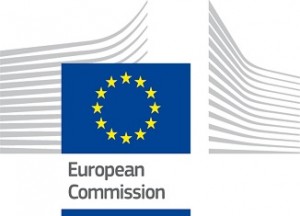 The share price of Britain’s biggest power station operator has jumped to a five-month high after the European commission approved subsidies for its conversion to burn wood pellets instead of coal.
The share price of Britain’s biggest power station operator has jumped to a five-month high after the European commission approved subsidies for its conversion to burn wood pellets instead of coal.
Drax was awarded a renewable energy subsidy contract by the government in 2014 to switch the third unit of its coal power station in North Yorkshire over to biomass. That prompted a state-aid investigation by the commission, which was concerned the estimates of the plant’s performance were too generous and Drax would be overcompensated.
On Monday the investigation cleared the subsidy, which sees a guaranteed price paid for electricity generated by the plant. The commission said its analysis found the support would “not result in overcompensation” and would not unduly distort the wood market that will supply the plant with 2.4m tonnes of pellets a year.
The approval comes at the end of a year that has seen coal power drop to a record low in the UK – down two thirds on 2015 – as environmental policies have shuttered several major coal plants. Ministers have said the country’s last coal power station will close in 2025 to meet climate targets.
Dorothy Thompson, CEO at Drax Group, said: “We are pleased the European commission has completed its review of the contract and approved it in line with our expectations. We now look forward to fully converting the unit to run on sustainable biomass.”
But the company is still looking for financial support to convert the fourth of its six units to biomass, which the government has previously said is ineligible for subsidies. “With the right conditions, we can do even more,” said Thompson.
“This announcement is hugely welcome, if a long time coming,” said local Conservative MEP, Amjad Bashir, who added that the power station would play an important role in climate targets.
But green groups questioned the climate change credibility of burning wood pellets which are largely sourced from US forests.
“Big environmental question marks continue to loom over biomass and whether it is in fact renewable on this scale. Biomass has been classified indiscriminately as a ‘zero carbon’ energy source but this stems from flaws in the way the EU and US account for carbon,” said Susan Shaw, a lawyer at the NGO ClientEarth.
Drax Group shares rose to a high of 356.2p on Monday, just below their highest level this year, in July. Company shares soared earlier this month after the company’s bid to buy four gas power stations in a diversification away from its reliance on coal.
Source: theguardian.com
